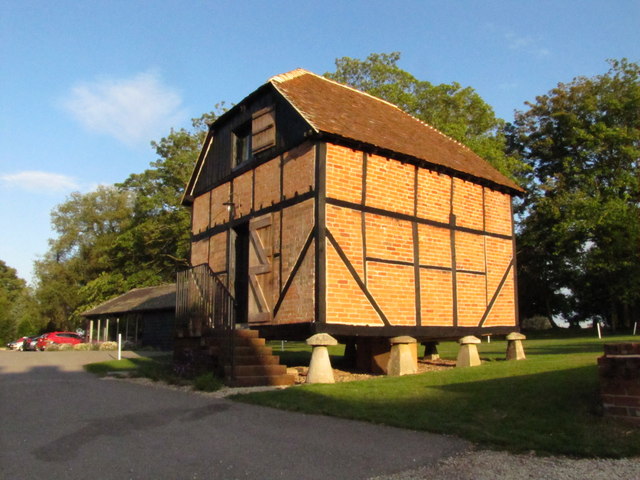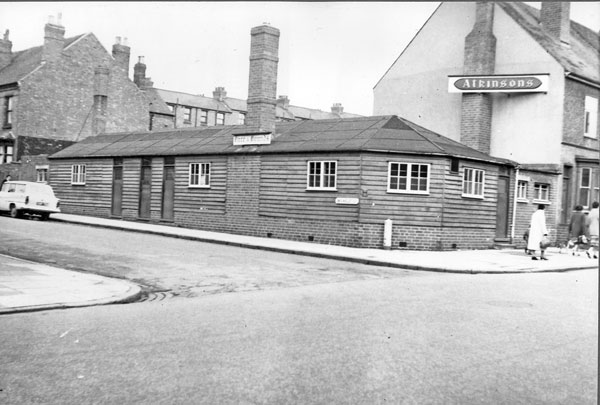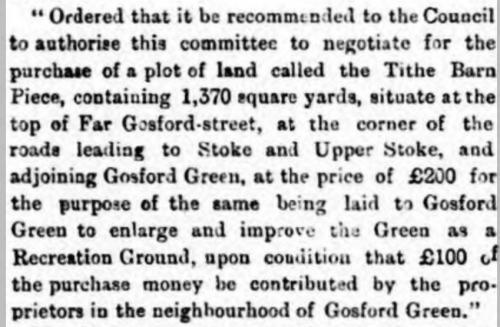|
Prof
Gloucester |
61 of 115
Mon 15th Oct 2018 6:29pm
I think it very likely though I cannot read the lettering even when enlarged. |
| Local History and Heritage - Gosford Green | |
|
Dreamtime
Perth Western Australia |
62 of 115
Tue 16th Oct 2018 5:09pm
On 15th Oct 2018 5:12pm, Kaga simpson said:
Prof. Was that Capstan Cigarettes on the house wall?
Kaga, could be Capstan's Navy Cut.
|
| Local History and Heritage - Gosford Green | |
|
Kaga simpson
Peacehaven, East Sussex |
63 of 115
Tue 16th Oct 2018 5:42pm
Dreamtime, spot on.
Two things happened to me alongside Gosford Green. My friend and I bought a set of barbells and weights off a guy two doors from Swan Lane in 1949, and a guy gave me a lift from Ansty to Binley Road in 1945. As I stepped out of his car the running board dropped off into the road - oops! |
| Local History and Heritage - Gosford Green | |
|
Kaga simpson
Peacehaven, East Sussex |
64 of 115
Wed 17th Oct 2018 10:29am
Greg,
You may be interested - long time ago, we either walked to Bell Green, caught the tram along Stoney Stanton Road, or walked to Longford, caught tram along Foleshill Road. But sometime in the thirties they started a bus service up to Lentons Lane, then we travelled a new route, all the way round Walsgrave to the Forum, Poets Corner, Ball Hill - at Gosford Green we knew it was time to get off the bus for the Scala Cinema.
I think the Forum and Poets Corner were just being built.
I think I saw Tom Mix and Buck Rogers at the Scala?
Tom Mix in cement was a popular saying in the thirties, but now there is a firm called that. The mind boggles. |
| Local History and Heritage - Gosford Green | |
|
Kaga simpson
Peacehaven, East Sussex |
65 of 115
Mon 18th Mar 2019 4:33pm
For many years on Gosford Green stood an old tithe barn, it was a considerable size, and tithe offerings were collected by the churches' representatives. But it had a makeshift stage and actors performed there, the audience mostly juvenile class who paid their pennies. There was a large beam off the roof to the barn, reaching across the building near the stage end, upon which a number of youths usually perched like so many crows, and actors often reached up and removed them when noisy. One performance was a duel - when the villain of the piece was killed, a few minutes he got up and said "Sir I'm mortally wounded", to which the other actor said "Mortally I hope". The villain then staggered a few steps and fell down dead for the second time. |
| Local History and Heritage - Gosford Green | |
|
Helen F
Warrington |
66 of 115
Mon 18th Mar 2019 4:57pm
I don't know if it's the same building but there was a granary just off Far Gosford Street.
Zoom out twice to see location.
This and an older map hint that the building was up on mushrooms or pillars (called staddle stones). In 1888 steps up to a higher level on the east side. It would be under Bramble Road, next to the Hare and Hounds. It might have looked like this:
 The steps would be a later addition because while used as a granary, no permanent link to the ground was made so the rats (kept at bay by the mushrooms) couldn't get in.
The steps would be a later addition because while used as a granary, no permanent link to the ground was made so the rats (kept at bay by the mushrooms) couldn't get in.
|
| Local History and Heritage - Gosford Green | |
|
Prof
Gloucester |
67 of 115
Mon 18th Mar 2019 5:29pm
Very interesting Helen F. Bramble St though rather than Road! |
| Local History and Heritage - Gosford Green | |
|
Helen F
Warrington |
68 of 115
Mon 18th Mar 2019 5:50pm
I'm always getting the Street, Road, Lane, Row bits wrong. Thanks Prof.
The red pointer is to the right of the granary. It's the building behind the one that fronts the road. Either the front was smaller or not there because there would have been no value in staddle stones if another building connected the granary with the ground.
 The hut sat on the site of the pub and the granary was parallel with the back end of it, in line with the white car.
The hut sat on the site of the pub and the granary was parallel with the back end of it, in line with the white car.
|
| Local History and Heritage - Gosford Green | |
|
Kaga simpson
Peacehaven, East Sussex |
69 of 115
Tue 19th Mar 2019 9:00am
Helen. Then we see it different.
The granite mushrooms were heavyweight stilts that kept the building from flooding, and before the railway Gosford Green was one big slope so would never get flooded, so didn't need stilts. It was also a tithe barn so held one tenth of the produce the land produced as annual rent to the land-owner.
To me there was a huge difference between a barn and a granary. A barn was for shelter for farm animals and animal fodder, at ground level, a granary was for seed storage, always above the first floor because of damp, for damp rots the seeds, so, granaries, seed merchants, mills had a chain and pulley shaft to lift the sacks of grain to higher levels. Farms generally had them (granaries) over cattle pens so the warmth of the animals kept the seed dry. Any building with height needed steps or ladder so did not stop rats, but doors did, some ladders or steps had steel hooks that hooked into rings, you could then unhook them anytime and lay them elsewhere.
The building you show is modern and a mish-mash, why it needs stilts is beyond me with the drainage of today, unless it needs air circulation. and it's almost certain it has a heating system.
Saddle-stones was a nick-name, looked like a saddle, and the building sat on them.
That's the way it came down to me. |
| Local History and Heritage - Gosford Green | |
|
Helen F
Warrington |
70 of 115
Tue 19th Mar 2019 9:46am
You're right Kaga, a tithe barn was different. My bad. I've no idea where that was. There doesn't seem to be an obvious building to fit the description on the 1850 map. The south west end of Gosford Green looked like boggy ground. There was a St Margaret's Chapel there - gone by 1850, so there may have been a cluster of buildings demolished in that area. To the north there were newish buildings, which could have been built over where the barn was originally. To the south there was a stable and a pinfold (pen for stray animals). The stable doesn't look big enough to be a tithe barn. There were two pools to the south of the Gosford Green Causeway.
But the building next to the Hare and Hounds was a granary. The mushrooms may have helped keep the grain dry but they were principally designed to keep out rats and mice. The shape meant that while the rodents could climb the base, they couldn't then get onto the building because they met the saddle stone. Some bird feeders have a similar feature today. A lot of the existing granaries have brick infill, rather than wattle and daub. While not original, the practice isn't new. Many of the surviving tithe barns have also been infilled or clad in brick. |
| Local History and Heritage - Gosford Green | |
|
Annewiggy
Tamworth |
71 of 115
Tue 19th Mar 2019 1:53pm
An extract from an 1890 Coventry Herald, does this help Helen ?

|
| Local History and Heritage - Gosford Green | |
|
Annewiggy
Tamworth |
72 of 115
Tue 19th Mar 2019 2:15pm
Another from 1936
 Some other articles mention the chapel. They thought at one time some if the materials when the chapel was pulled down were used in the barn but no evidence was found. The tithe barn was also used for plays.
Some other articles mention the chapel. They thought at one time some if the materials when the chapel was pulled down were used in the barn but no evidence was found. The tithe barn was also used for plays. |
| Local History and Heritage - Gosford Green | |
|
Helen F
Warrington |
73 of 115
Tue 19th Mar 2019 3:01pm
That ties together well Anne, thanks. There is a roughly circular area at the west end of Gosford Green marked as vegetable gardens. It's drained by a small stream round the northern and eastern edges and is where the site of the Chapel is located. |
| Local History and Heritage - Gosford Green | |
|
Annewiggy
Tamworth |
74 of 115
Tue 19th Mar 2019 3:05pm
Thanks Helen. This one to finish for you.

|
| Local History and Heritage - Gosford Green | |
|
Helen F
Warrington |
75 of 115
Tue 19th Mar 2019 3:16pm
Double thumbies for that Anne. |
| Local History and Heritage - Gosford Green | |
Website & counter by Rob Orland © 2024
Load time: 631ms